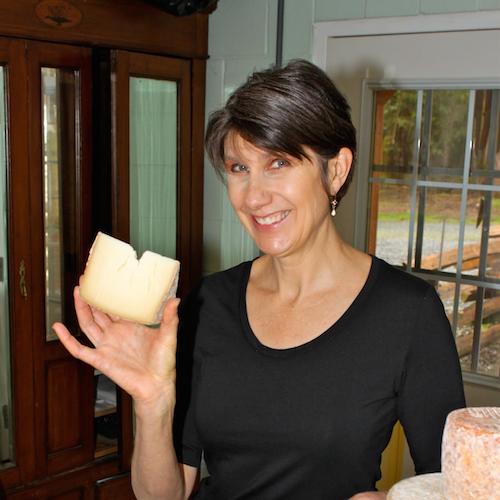
Photo: Stilton PDO by Mark Ferri
![]() Why do only some cheeses have DOP/PDO/AOP status?
Why do only some cheeses have DOP/PDO/AOP status?
![]() If you’re like me, acronyms tend to spill off the tongue in a haphazard fashion; When it comes to reading cheese labels, you might get a mouthful of these abbreviations. These European-based acronyms are “geographical indications” (and yes, that has its own acronym of GI). They are also referred to as “quality schemes,” which are designed to help consumers have confidence in the products. Before the formation of the European Union, countries such as France and Italy had their own GIs. Once these nations became part of the EU, most of the terminology was streamlined to the single GI of “protected designation of origin,” or PDO.
If you’re like me, acronyms tend to spill off the tongue in a haphazard fashion; When it comes to reading cheese labels, you might get a mouthful of these abbreviations. These European-based acronyms are “geographical indications” (and yes, that has its own acronym of GI). They are also referred to as “quality schemes,” which are designed to help consumers have confidence in the products. Before the formation of the European Union, countries such as France and Italy had their own GIs. Once these nations became part of the EU, most of the terminology was streamlined to the single GI of “protected designation of origin,” or PDO.
However, since protected designation of origin is an English term, the same term translates differently in other languages. For example, in France the PDO equivalent is appellation d’origine protégée, or AOP; in Italy it is denominazione di origine protetta, or DOP; and in Spain it is denominación de origen protegida, also DOP. (If you want a more in-depth answer, I recommend reading the section titled “Cheese Appellations” in Max McCalman and David Gibbons’ book Mastering Cheese (Clarkson Potter, 2009).
For a cheese to qualify for PDO or equivalent status, it must meet certain criteria that include things such as where it is made (the appellation), how it is made (the recipe), the source of the milk, and how and where the cheese is aged (the affinage). This aspect of appellations is quite complex and no stranger to controversy.
No such systems exist in North America, which isn’t surprising given the more recent history of cheesemaking and the proudly independent nature of North Americans (cheesemakers included). I suggest viewing these schemes as, in effect, preserving a maker’s process as it was at the time the status was granted. This doesn’t mean that the process is inherently more artisan! The best example of this is the English classic Stilton, which was made with pasteurized milk at the time it was granted the PDO label, even though it had a long tradition of being made with raw milk before that. (It’s up in the air as to what Brexit will do to the PDO British cheeses!)




